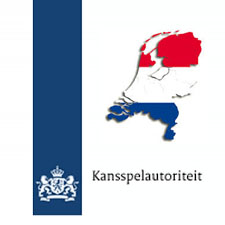Skin Betting Declared Illegal in the Netherlands

In mid-August, the Dutch gambling regulatory authority known as Kansspelautoriteit (KSA) issued two separate statements declaring online esports betting and skin betting illegal. While the news itself is not surprising when one considers the current legality of online gaming in the Netherlands, it does, however, shed some light on just how unprepared the authority currently is to enforce the regulations.
About the Statements
Kansspelautoriteit issued statements asserting that:
– E-Sports betting is illegal in the Netherlands. The bulletin said that e-sports betting is a game of chance no different than online sports betting in that it asks users to pick one opponent over another.
– Skin betting is illegal in the Netherlands. Skin betting refers to eSports matches that risk virtual goods known as ‘skins’ instead of cash, but the Kansspelautoriteit has now asserted that skins traded in-game have monetary value, and therefore are the same as gambling.
The Kansspelautoriteit has specifically stated that e-sports betting and skin betting are forms of gambling that require licensing under Dutch law; however, as there are no regulations in place to allow such licenses to be issued, all e-sports betting and skin betting will be considered illegal at this time.
Why It’s No Surprise
For those who are not familiar with the state of gambling laws in the Netherlands, this announcement may seem monumental, but it’s really more of a moot point because at the present time, all forms of online gambling are already illegal.
In 2011, the Netherlands had to revoke its online gambling laws due to protests from the European Commission that their laws violated EU standards. Ever since, the government has been trying to draft a new law, but the process has been held up by debates on many issues. At this time, Kansspelautoriteit is unable to issue licenses for any type of online gambling site whether it’s online poker, e-sports or an online sports book.
What the Announcements Do Show
It wasn’t Kansspelautoriteit’s announcement declaring online esports and skin betting illegal that was really the main news. What was most interesting about the two most recent bulletins, however, was the fact that the gaming regulator had asked the general public for information to help them crack down on the illegal gambling practices in the first place.
Individuals were asked to report the name of the provider, how they were approached, how much money was lost or used and if any minors were involved in the transaction. This shows Kansspelautoriteit really has no idea where to begin looking for prospective violators, and that E-sports is a completely uncharted territory for the gaming regulator.
The fact that Kansspelautoriteit is ill equipped to handle e-sports regulation could mean that we’re therefore unlikely to see any legalization of e-sports or skins betting when the Netherlands does eventually succeed inpassing online gambling legislation. A bill is expected to be passed sometime in 2017 with the first new licenses being issued during the first quarter of 2018 at the latest.
Nevertheless, hope still exists that Kansspelautoriteit will have enough time between now and then to become better acquainted with the finer points of e-sports betting. Therefore, it’s really too soon to totally dismiss the prospect of seeing e-sports gambling legislated in the Netherlands when the new iGaming legislation does come out.
Netherlands a Major Gambling Market
The Netherlands may be a small country of just 17 million people, but its GDP per capita is the 15th highest in the world. Such purchasing power parity makes the country’s market an attractive draw for gambling companies, with one survey suggesting that as many as 1.5 million Dutch adults spend around €500 million each year gambling online.
Nevertheless, the Netherland’s has been slow to adopt online gambling legislation, and since 2014 operators have been prevented from advertising their product in the market. The extent to which the ruling extended is highlighted in the fact that Kansspelautoriteit even told 888 not to offer a sponsorship del to Dutch poker player Jorryt Van Hoof, even though he had reached the final table of the 2014 WSOP Main Event in pole position. Any contravention by 888 would have risked the operator jeopardizing its prospects of being considered for an iGaming license at some stage in the future.









